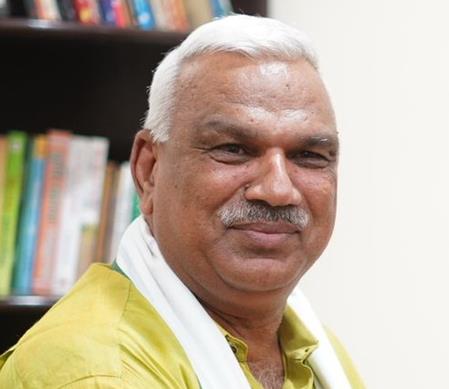Anti-Forced Conversion Law Vital To Protect Weaker Sections: Rajasthan Minister (Lead)
Defending the legislation, Minister of State for Home Jawahar Singh Bedham said the bill is crucial for ensuring social harmony and safeguarding vulnerable sections of society.
He stressed that while Article 25 of the Constitution guarantees freedom of religion, it does not allow conversion through deceit, fear, fraud, or inducement.
The bill introduces stringent punishments for forced or fraudulent conversions:
7-14 years imprisonment and a fine of Rs 5 lakh for conversion by deceit.
10-20 years imprisonment and a minimum fine of Rs 10 lakh if the victim is a woman, minor, Scheduled Caste, Scheduled Tribe, or Divyaangjan.
20 years to life imprisonment and a fine of Rs 25 lakh for mass conversions.
10-20 years rigorous imprisonment and a fine of Rs 20 lakh for receiving foreign or illegal funds for conversion activities.
20 years to life imprisonment and a fine of Rs 30 lakh for conversions through threats to life/property, deceitful marriages, or trafficking.
Repeat offenders will face 20 years to life imprisonment and a fine of Rs 50 lakh.
The bill also allows confiscation of properties used for illegal conversions and declares marriages done solely for conversion purposes annulled by a competent court. Those converting voluntarily must inform the District Magistrate 90 days in advance; failure to do so will attract 7-10 years imprisonment and a fine of Rs 3 lakh.
Religious leaders conducting conversions must also give 60 days' prior notice, failing which they may face 10-14 years imprisonment and a fine of Rs 5 lakh. Bedham said that Dr. B.R. Ambedkar had stressed that religion is a personal matter, but its misuse to create social unrest is dangerous.
He cited Prime Minister Narendra Modi's statement that while every citizen has the right to religious freedom, nobody has the right to convert others through force or inducement.
He emphasised that weaker sections - Scheduled Castes, Scheduled Tribes, women, and the economically vulnerable - are often the primary targets of such activities.
The Minister pointed out that both the Supreme Court and several High Courts have repeatedly held forced conversion illegal and a serious threat to society.
He said forced conversion is not propagation of religion under Article 25 but a violation of fundamental rights. He further noted that several states, including Arunachal Pradesh (1978), Andhra Pradesh (2007), Uttarakhand (2018), Himachal Pradesh (2019), Uttar Pradesh (2021), Karnataka (2021), and Haryana (2022), have enacted similar laws. Rajasthan too had introduced an anti-conversion law in 2008.
“Under the leadership of Chief Minister Bhajan Lal Sharma, Rajasthan has now brought a stronger law to curb forced conversions,” Bedham said.
He added that the government has been taking strict action against such incidents in districts like Alwar and Banswara, ensuring swift arrests and legal action against offenders.

Legal Disclaimer:
MENAFN provides the
information “as is” without warranty of any kind. We do not accept
any responsibility or liability for the accuracy, content, images,
videos, licenses, completeness, legality, or reliability of the information
contained in this article. If you have any complaints or copyright
issues related to this article, kindly contact the provider above.
Most popular stories
Market Research

- United States Lubricants Market Growth Opportunities & Share Dynamics 20252033
- Daytrading Publishes New Study On The Dangers Of AI Tools Used By Traders
- Newcastle United Announce Multi-Year Partnership With Bydfi
- Ecosync & Carboncore Launch Full Stages Refi Infrastructure Linking Carbon Credits With Web3
- Utila Triples Valuation In Six Months As Stablecoin Infrastructure Demand Triggers $22M Extension Round
- From Zero To Crypto Hero In 25 Minutes: Changelly Introduces A Free Gamified Crash Course




















Comments
No comment